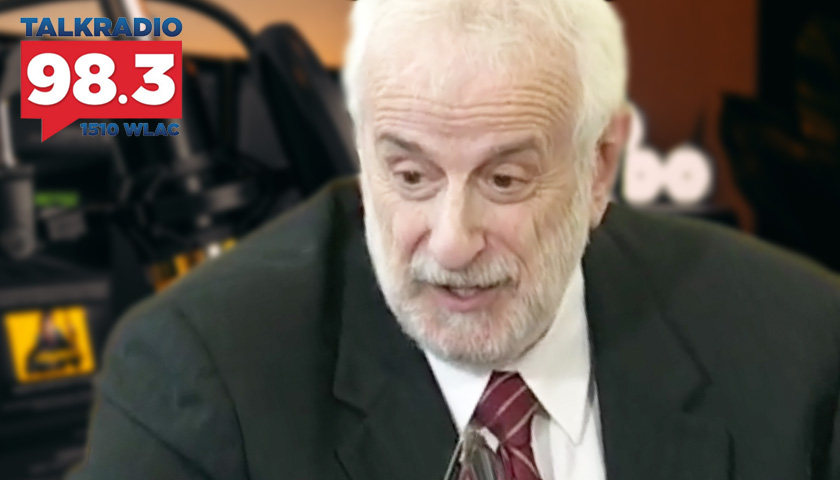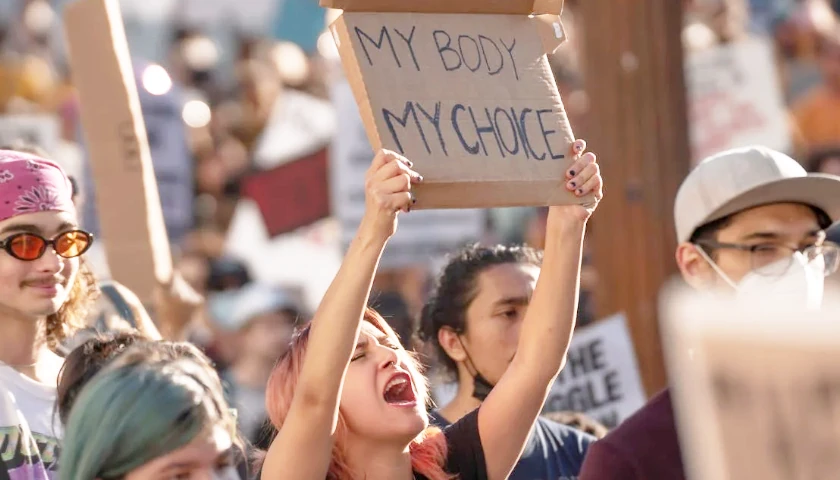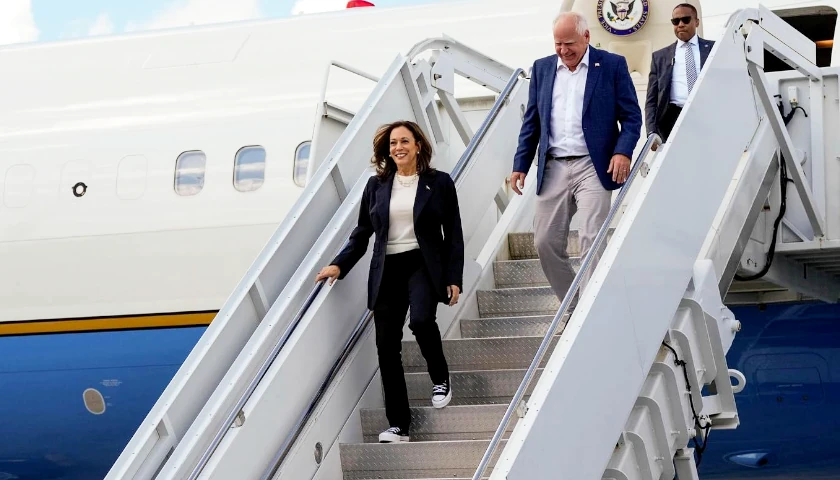Live from Music Row Monday morning on The Tennessee Star Report with Michael Patrick Leahy – broadcast on Nashville’s Talk Radio 98.3 and 1510 WLAC weekdays from 5:00 a.m. to 8:00 a.m. – host Leahy welcomed Talkers founder Michael Harrison to the newsmakers line to discuss the qualifications of a Heavy 100 lister and the changing dynamics of talk radio and it’s movement into multiple media forms.
Leahy: We are joined now by our good friend, Michael Harrison of Talkers Magazine. Good morning, Michael.
Harrison: Good morning to you, Michael. It’s great to be with you.
Leahy: Of course, Talkers is the Bible of talk radio media and I have been such an admirer of your work for so many years. Thank goodness you put this together. I watch it and read it. You put together the Heavy 100 every year.
And, of course, you’ve known Pill Valentine for many, many years. He’s been on the Heavy 100 at various levels for the past 20 years.
Harrison: Absolutely. Certainly a terrible loss. But Phil Valentine is one of the major names in talk radio. And even though most of his career was spent in Nashville, he did have a national show for a number of years. And in the industry, he was widely known and was widely respected. And, of course, he’s being mourned.
Leahy: When did you first become aware of Phil Valentine? And I’m trying to think of when he first would have been on the Heavy 100 list. When did you start doing the Heavy 100 list?
Harrison: We started doing the Heavy 100 list almost 30 years ago.
Leahy: Wow.
Harrison: It started out as the Heavy 25 and then it went to 100. So I don’t remember the exact year, but it was in the early ’90s.
And my first recollection of Phil Valentine was when he was on the radio in Philadelphia before he started his long career in Nashville. And he was at an FM station there, talk station WWDB. And that’s when I first became aware of Phil Valentine.
Leahy: I think it was ’95 or ’96. And then he moved to Nashville right after that. And then was here mostly after that.
Harrison: He was on the two different stations over a long period in Nashville. And for a brief period, he was doing fill-in work at different stations around the country. He even was on WABC in New York for a while.
So he’s quite a figure. But he’s mostly known for his contribution to Nashville broadcasting. And from what I know, I’ve been to Nashville a couple of times. He was a very big name.
Leahy: Big name here and very well respected. When you look at your Heavy 100, what sort of things do you look at in a talk radio host when you’re rating them on that Heavy 100?
Harrison: We do look at the numbers to a certain degree. Their revenue, their ratings, and how many years they’ve been on, the number of listeners they have. But beyond that, it’s subjective. It’s based upon their courage.
It’s based upon their uniqueness and originality, and their longevity. As I mentioned, their impact on the community, and their public service. A lot of the subjective criteria are sort of taken into account.
It’s put together by the editorial board. There’s a lot of arguing and weighing. (Chuckles) And again, it’s as much art as it is a science because talk radio is an art as well as a business. So it’s a combination of soft and hard elements, and it’s imperfect as anything else.
It’s a great vehicle for starting arguments and discussions, and it gives people outside of the industry who are interested in talk radio. It gives them a thumbnail snapshot, if you will, of the nature of the industry, in terms of the mixture of different types.
Liberals, Conservatives, females, and males on the air, different ethnicities races, regions, whether they’re local, and whether they’re nationally syndicated.
We try to create a composite that gives the press that writes about radio and fans of radio a bit of an opportunity to get a handle on the state of talk radio.
And I think we’ve done a good job of it, as evidenced by how long this thing has been going and how highly it’s regarded. I mean, we’re under a lot of pressure. People take it very seriously.
Leahy: What is the future of talk radio, in your view?
Harrison: The future of talk radio certainly is very dependent on the future of radio as an appliance and as a platform for communication. But beyond radio, the idea of talk shows, forums, discussions, workshops, panels, however, you want to put it, this is intrinsically tied into human nature.
We are as a species known for talking. So as long as we have communications of any kind, I do believe that there will be talk shows.
I’m very positive about the future of talk radio. I think that it has to deal with the transition it’s going through right now technologically.
And we’re constantly trying to come up with new business models so that people can make a living doing it with technology.
Leahy: (Chuckles) I’m in favor of that, by the way.
Harrison: Oh yeah. And you know what I’m talking about. It’s a different business now than it was. But that’s the same thing going on in the movie business and the publishing business and newspapers, magazines, television.
They’re all going through these transitions. But I think the idea of a forum under the protection of the First Amendment of the United States that’s able to deal with politics and deal with social issues in a real grassroots, nitty, gritty way, with pulling no punches, and that pushing the envelope and testing the First Amendment is where talk radio will stay. And I think the future will be bright as a result.
Leahy: I’m just paying attention to this as I’m looking at your website right now. For many, many years, your tagline had been talkers, The Bible of Talk Radio.
I notice you’ve added to that. Now you’re the Bible of Talk Radio and the New Talk Media. When did you make that change on your tagline? And what does that mean?
Harrison: I hate to tell you, but it was about 20 years ago.
Leahy: That shows you how much I’m paying attention. (Laughter)
Harrison: What it means is that talk radio does not exist in a vacuum, but it’s part of a larger process of talk media. And we call it the new talk media because that’s the new part of it. Radio has been around for 100 years now.
The new media has been around for about, I would say, a serious way affecting radio about 25 years. And over the past 20-25 years, one of the major messages Talkers has sort of projected to its readers is that the biggest challenge talk radio is going to face going forward, and we’re talking now the late 90s would be to transition into the digital era.
And that it cannot just be a medium that’s based upon a licensed region and available to people over a tower and transmitter on AM or an FM dial.
This is the biggest transition from an industry standpoint because we are an industry trade publication. We’re not a fan magazine that if you want to be in this business for a long time, you’re going to have to transition to the digital era.
You’re going to have to learn to podcast. You’re going to have to learn to stream. You’re going to have to integrate everything into what you do. It also sends the message that talk media is more than radio. It’s more than audio.
We consider cable news, talk television to be an offshoot of talk radio. And certainly, satellite radio is an offshoot of talk terrestrial radio. And that’s the message.
Leahy: Who is doing the best job of making that conversion? Who’s very prominent on talk radio, but also has got the podcast going and all the other digital things?
Harrison: A lot of people are doing very well. I guess you would have to say the most prominent personality would also be the one that is very prominent at doing that. And I would say, without a doubt, Rush Limbaugh led the way because Rush Limbaugh had a tremendous footprint in terms of his podcast and in terms of online listening.
Also from your neck of the woods, Dave Ramsey has done a good job of it. But most good broadcasters today, are doing it to full capacity and still growing and expanding the realm of options that they have technologically.
And you have to admit that the talk scene that’s thriving on cable television, whether it’s Fox, whether it’s CNN, MSNBC, Newsmax, One America News, and all these different news outlets. These are all very cutting edge on the technological end.
And I think we’re heading into an era that I call the media station where five to ten years from now, there won’t be that much of a differential between the technological platforms of newspaper, radio stations, and TV stations.
They’ll all be sort of one. But some will focus on news more, some will focus more on audio, some will focus more on entertainment. They’ll take their specialties. But it’s become a multi-media world.
And it’s not as much of a novelty today as it was, say, in 2010 or in 2000. And we’ve been following all of it. Now online is where everybody is.
If we were having this discussion 20 years ago, you’d say, are people turning on to these other options? And I’d say, well, they’re starting to. The young people are. But now even the old people are online. Everybody’s online.
Leahy: Everybody’s online. Michael Harrison with Talkers Magazine. Thanks so much. Come back again if you would please.
Harrison: Thank you, Michael.
– – –
Tune in weekdays from 5:00 – 8:00 a.m. to the Tennessee Star Report with Michael Patrick Leahy on Talk Radio 98.3 FM WLAC 1510. Listen online at iHeart Radio.





